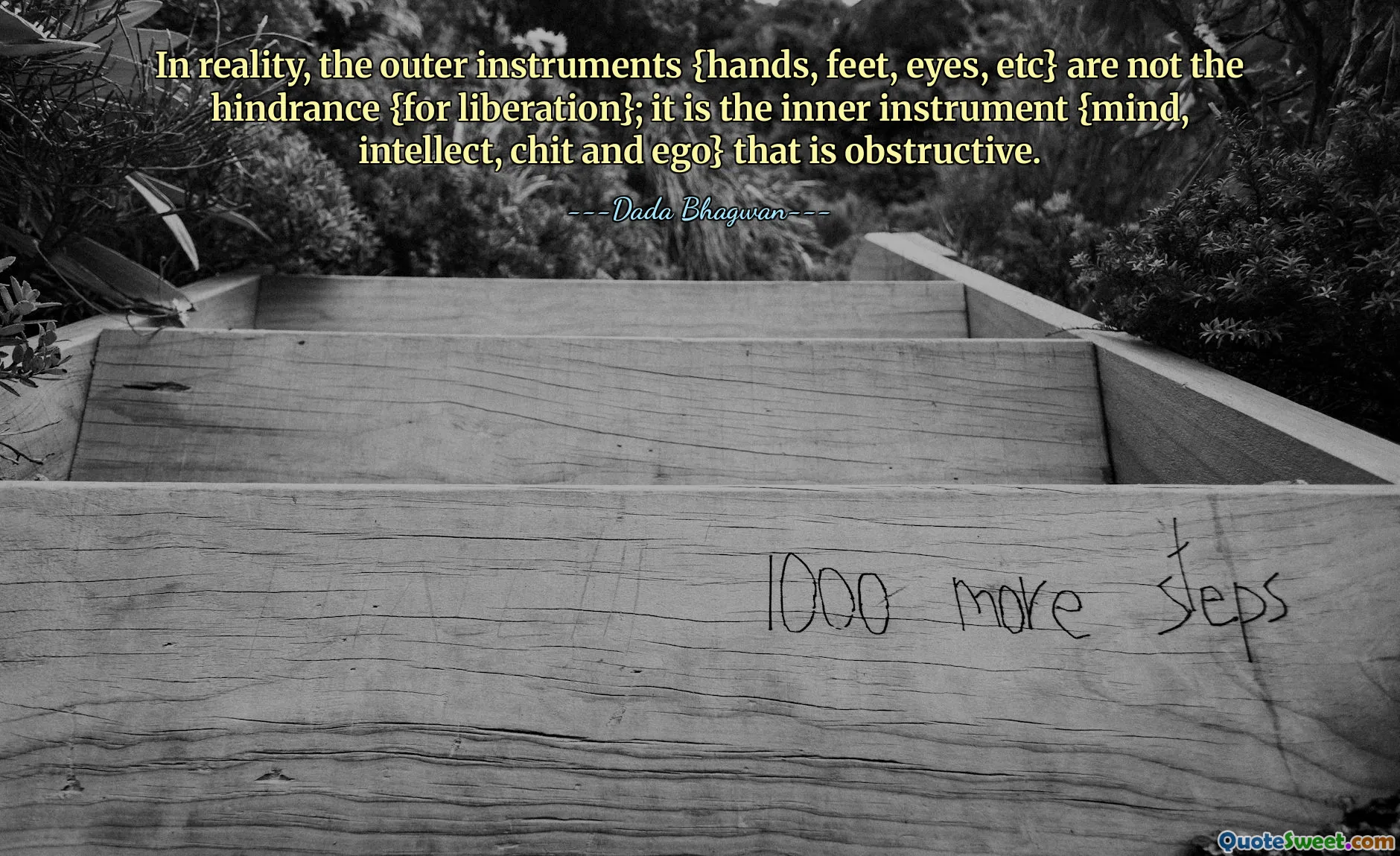
In reality, the outer instruments {hands, feet, eyes, etc} are not the hindrance {for liberation}; it is the inner instrument {mind, intellect, chit and ego} that is obstructive.
This profound statement highlights an essential truth about human liberation and self-awareness. Often, individuals perceive external obstacles—such as physical limitations, circumstances, or environmental factors—as the primary barriers to their spiritual or personal freedom. However, the real challenge lies within—the inner workings of our mind, intellect, consciousness (chit), and ego. These internal instruments shape our perceptions, reactions, and inner state, which ultimately determine our level of freedom and peace.
The mind and ego often act as filters and barriers, creating illusions, attachments, and identifications that cloud our understanding of reality. When these inner instruments are turbulent or misaligned, even the most external comforts cannot lead to true contentment or liberation. Conversely, when one's inner state is peaceful and clear, external conditions hold less power over one's sense of happiness.
Dada Bhagwan’s insight encourages us to look inward rather than outward in our journey toward liberation. By purifying the mind, reducing ego, and fostering understanding, one can transcend the limitations imposed by internal obstacles. This introspective approach demands a diligent effort in self-awareness, meditation, and inner work, focusing on trimming the ego and calming the restless mind.
In practical terms, the quote guides us to understand that happiness and liberation are largely unaffected by external circumstances, provided our internal instruments are aligned and functioning harmoniously. Inner peace and clarity are the true instruments of liberation—a principle that remains relevant regardless of external challenges or conditions.







